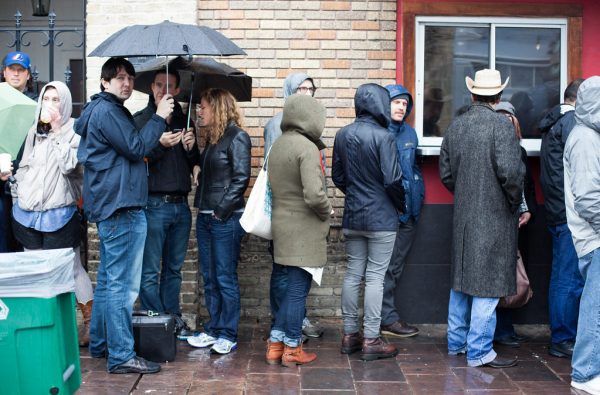
At this very moment, as you read this, you are waiting on something. We all are waiting on something, always. As anthropologist Ghassan Hage wrote, we wait for “an ice cream and for final judgment.” The coronavirus pandemic has illuminated waiting. We waited to hear guidelines from government and health officials. We waited for our stimulus checks. And, now, we wait for our turn to get a vaccination.
A difficult part of waiting is that we often do not know how long we will wait. For example, how long will we wait for a coronavirus vaccine? Research has found the importance of temporal specificity, meaning the presence or absence of a deadline as an assurance of action. A specific timeframe, telling a person when the waiting will end, gives “some degree of control over the situation, through knowledge” (Rotter, 2016).
- Jason Farman, 2018. Delayed Response: The art of waiting from the ancient to the instant world. Yale University Press.
- Ghassan Hage, 2009. Waiting. Melbourne University Press.
- Rebecca Rotter, 2016. Waiting in the asylum determination process: Just an empty interlude?Time & Society, 25(1): 80-101.
- Harold Schweizer, 2008. On Waiting. University of Toronto Quarterly, 74(3): 777-792.
Time is an irreplaceable and finite resource. Waiting can feel like a waste of time. Researchers have observed that, thanks to technology, waiting can be “more than empty time” (Sebald, 2020). Digital media and “speed of connectivity is the antipode to waiting” (Wexler, 2015). Digital connection makes waiting more tolerable.
- Ruth Ayaß, 2014. Using media as involvement shields. Journal of Pragmatics, 72: 5–17.
- Giovanni Gasparini, 1995. On Waiting. Time & Society, 4(1): 29-45.
- Gerd Sebald, 2020. “Loading, please wait:” Temporality and (bodily) presence in mobile digital communication. Time & Society. Online first.
- Mark Wexler, 2015. Re-thinking queue culture: the commodification of thick time. International Journal of Sociology and Social Policy, 35(3/4): 165-181.

Comments